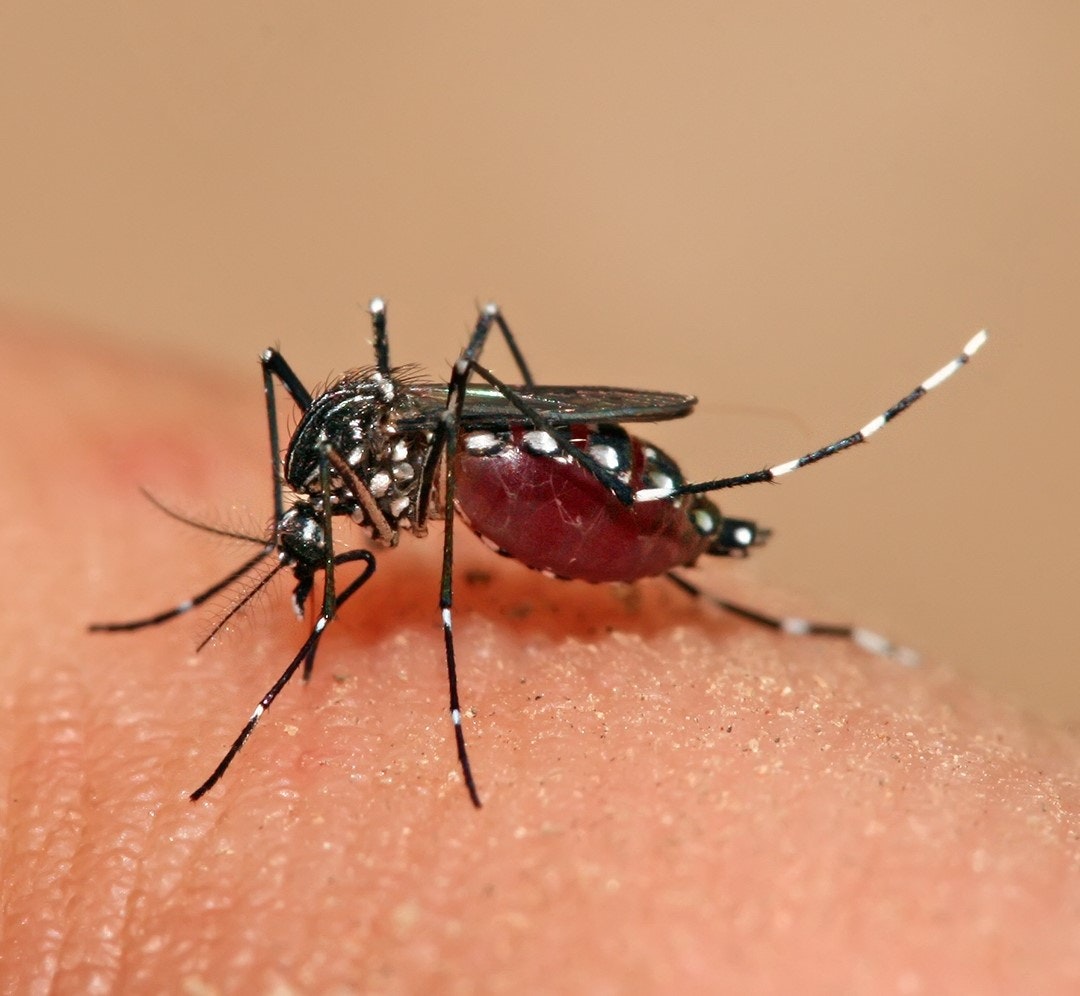The Alameda County Mosquito Abatement District Steps Up Efforts After Aedes aegypti Larva Detected


HAYWARD, CA August 4, 2025– The Alameda County Mosquito Abatement District discovered an Aedes aegypti mosquito larva in a trap placed in the Alameda County Fairgrounds in Pleasanton. This mosquito is not native to California and can spread diseases such as dengue, Zika, and yellow fever. The District is inspecting and treating all known mosquito breeding sites in the area and conducting intensive follow-up trapping.
Aedes aegypti was previously detected in the same area of Pleasanton in October of 2024. Aedes aegypti is an aggressive mosquito that bites throughout the day, often preferring to bite near the ankles. These mosquitoes are container breeders, laying their eggs just above the waterline in small, artificial water sources such as buckets, pet dishes, fountains, bird baths, plant saucers, and old tires. Once laid, the eggs can survive for over a year without water. Scrubbing containers can dislodge the eggs and prevent them from being transported to new locations. The District's goal is to prevent this mosquito from becoming permanently established in Alameda County.
“The Aedes aegypti larvae was collected from a trap on July 30 and we responded the next day by increasing our mosquito monitoring, inspection, and treatment efforts at the Alameda County Fairgrounds and surrounding neighborhoods,” said Dr. Eric Haas-Stapleton, Laboratory Director of the Alameda County Mosquito Abatement District. “It's important to note that the larvae was collected from a trap that contains a material that keep mosquitoes from growing, eventually eliminating larvae and adults, and is also spread to other breeding sites that the adult mosquito visits.”
The District urges residents in Pleasanton, and throughout Alameda County, to inspect their properties for standing water, which provides breeding habitat for mosquitoes. Aedes aegypti eggs are extremely small and often mistaken for dirt or seeds. This mosquito can grow from an egg to an adult in as little as a bottle cap of water. The adult mosquito is a little less than a quarter-inch long, with black and white stripes on its back and legs. It usually only bites people and does not fly long distances, typically less than 300 feet from where it hatches.
If Aedes aegypti becomes established in Alameda County, it can threaten public health and diminish quality of life, as these mosquitoes are highly aggressive and active during daylight hours. Though not native to California, Aedes aegypti is now found in at least 26 counties across the state, including neighboring counties.
To protect yourself from mosquito bites:
- Apply insect repellents containing EPA-registered ingredients such as DEET, picaridin, IR3535, or oil of lemon eucalyptus.
- Wear long-sleeve shirts, pants, socks, and shoes when mosquitoes are most active.
- Ensure window and door screens are in good condition.
- Report mosquitoes biting during the day immediately to the Alameda County Mosquito Abatement District at (510) 783-7744 or on the website at www.mosquitoes.org.
If you develop a fever, headache, and joint or muscle pain after returning from an area where dengue, chikungunya, yellow fever, or Zika is present, contact your doctor. Wear mosquito repellent for three weeks and stay indoors as much as possible to avoid mosquito bites and help prevent the possible spread of disease.
